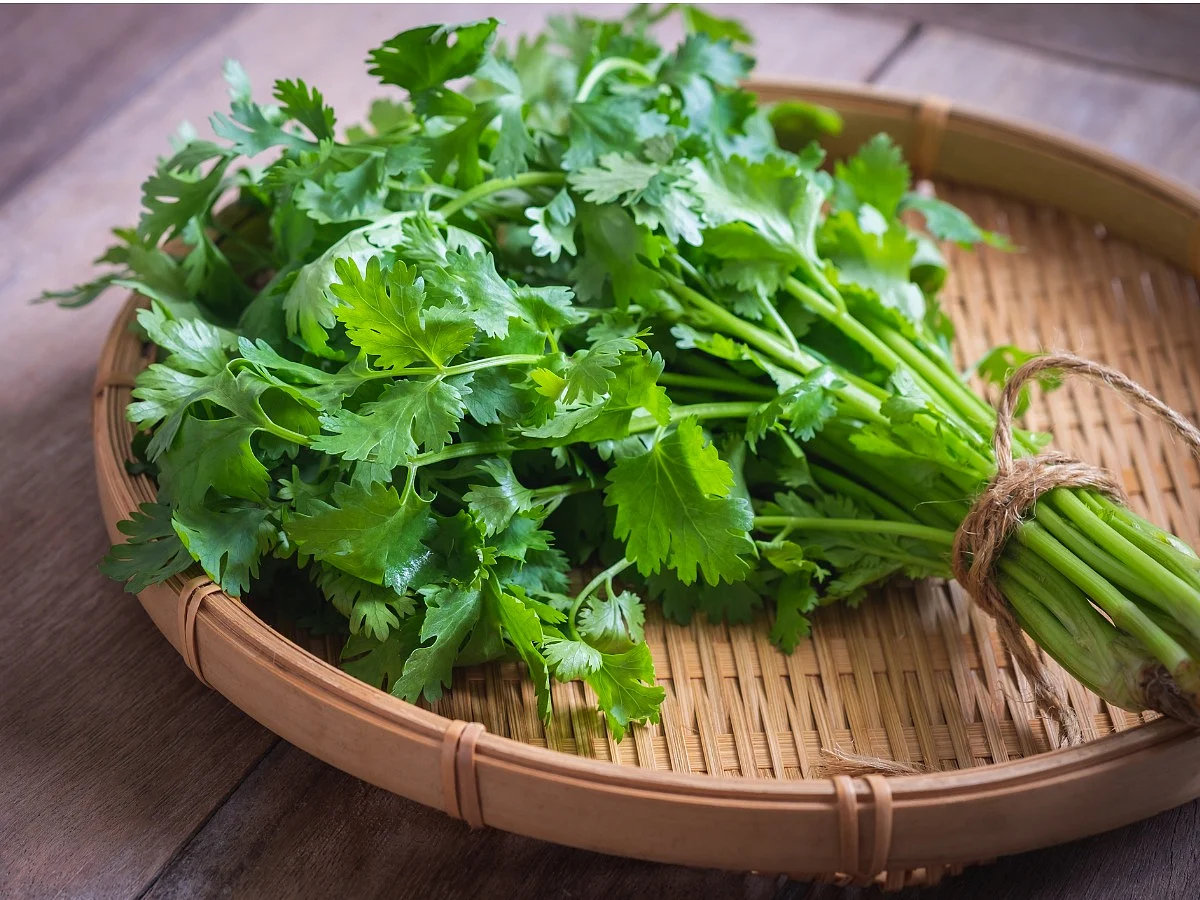7 Health Benefits Of Coriander Leaves
Check the health benefits of coriander leaves for skin, hair, and overall health

advertisement
Coriander is a fragrant, antioxidant-rich herb that has many culinary uses and health benefits. It comes from the Coriandrum sativum plant and is related to parsley, carrots, and celery. It helps lower blood sugars, fight infections, and promote heart, brain, skin, and digestive health. Coriander is an herb that is commonly used to flavor international dishes. In the United States, Coriandrum sativum seeds are called coriander, while its leaves are called cilantro. The plant is also known as Chinese parsley.
Many people use coriander in dishes like soups and salsas, as well as Indian, Middle Eastern, and Asian meals like curries and masalas. Coriander leaves are often used whole, whereas the seeds are used dried or ground. In addition, coriander leaves are rich in Vitamin C, Vitamin K, and protein. They also contain small amounts of calcium, phosphorous, potassium, thiamin, niacin, and carotene.
What Are the Benefits Of Eating Coriander Leaves?
1. Promotes Healthy Vision
Coriander is considered to be healthy for our eyes. This is because coriander leaves are rich in Vitamin A, Vitamin C, Vitamin E, and carotenoids, which help to promote good vision. Daily consumption of coriander helps delay age-related macular degeneration and also helps manage conjunctivitis.
2 Strengthens Immunity
Coriander leaves are high in Vitamin C, Vitamin E, and Vitamin A which together keep our immune system healthy. Vitamin C helps the white blood cells to function properly thus helping in the absorption of iron.
3. Helps in Managing Blood Sugar Levels
The bright green color of coriander is due to the presence of antioxidants, which promote enzyme activity. The enzyme activity stimulates insulin secretion which lowers the blood sugar levels. You can add coriander to every meal or drink coriander-infused water daily if you suffer from high blood sugar levels.
4. Helps to Lower Bad Cholesterol
Every third person we look around us in today's lifestyle suffers from high cholesterol problems. Regular consumption of coriander leaves helps to reduce LDL (bad) cholesterol and improves HDL (good) cholesterol.
5. Helps Improve Bone Health
Coriander leaves contain a generous amount of bone-enriched minerals like calcium, manganese, magnesium, and phosphorus. The anti-inflammatory function of the coriander also protects the bone from arthritis-related pain.
6. Helps to Enhance Gut Health
Coriander leaves contain a high amount of fiber, which helps to provide relief from digestive problems. It also proves to be beneficial in case of digestion problems like stomach upset, diarrhea, bowel spasms, gas, or nausea.
7. Promotes Good Skin
Coriander leaves are a powerhouse of iron, Vitamin E, and Vitamin A, and hence fight against the free radicals that damage the skin. Coriander also acts as a remedy for oily skin due to its ability to absorb excess oil. Being an antimicrobial, antiseptic, and antifungal agent it also helps to soothe and cool the skin.
(At The Quint, we question everything. Play an active role in shaping our journalism by becoming a member today.)